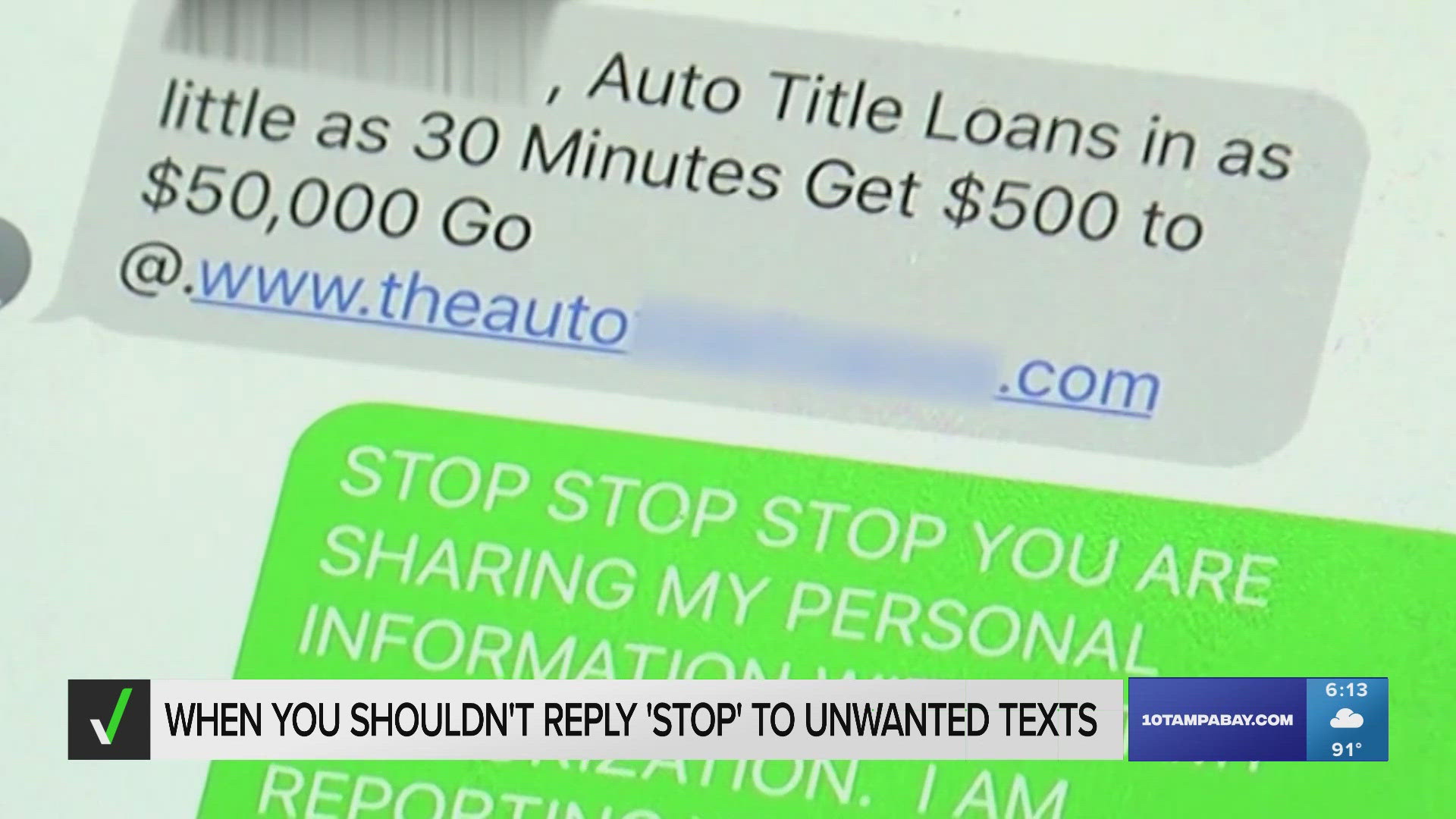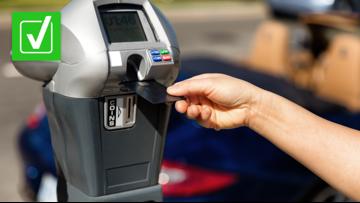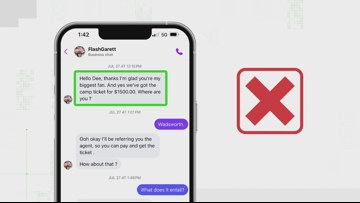ST. PETERSBURG, Fla. — Unwanted text messages constantly buzzing on your phone can drive you nuts.
But could a common step many of us take to stop them be doing the opposite?
Often, a text message will say to reply “STOP” to stop future messages. Some users online claim replying “STOP” will unsubscribe you. But others say replying increases your chances of receiving more unwanted text messages.
THE QUESTION
Should you reply “STOP” in order to stop unwanted spam text messages?
THE SOURCES
THE ANSWER
No, you should not reply “STOP” to unwanted text messages in situations where you don’t recognize the number or sender or if they seem suspicious.
WHAT WE FOUND
Increasingly, scammers are using text messages as a starting point to target potential victims. The Federal Communications Commission (FCC) says complaints about unwanted text messages have risen steadily since 2019.
Unexpected texts from unfamiliar sources
The FCC warns against responding to unwanted texts from questionable sources. Some scammers may be after your money, while others want your personal information or to simply confirm a number is active for use in future scams, the agency warns.
Verizon warns its customers not to respond to unwanted or suspicious texts, not even to say “STOP.”
Directly replying to a spam text message lets a spammer know that your number is genuine, according to digital security software company Norton. After you reply, they can sell your phone number to other spammers, AARP says.
Scammers sometimes pose as legitimate, familiar businesses and use urgent language to convince you to take action to secure a benefit, resolve a problem or avert a threat, according to AARP. Scammers recently impersonated SunPass, sending drivers phony messages about unpaid tolls with links to spoof websites designed to steal personal banking information.
Several mobile service providers allow you to block the sender of unwanted texts by forwarding them to 7726 (or "SPAM").
Political texts
Federal rules say political campaigns or organizations do not need your permission to start texting you, and there's nothing you can do in advance to prevent them. The FCC only prohibits unsolicited political calls or texts to cell phones if they're sent using automated dialing or texting software.
However, according to the FCC, if you text “STOP” to a political text, they should honor your opt-out request.
If you receive unwanted political text that you think violates federal rules, you can report it online to the FCC.
Texts you suspect are legitimate
Under the Telephone Consumer Protection Act (TCPA), legitimate businesses must obtain consent to communicate with you through text messaging and allow consumers to opt out of a subscriber list by directly replying to a text.
But since scammers sending you texts don’t follow the same rules, that text you think is from a company you know could be an imposter. The Federal Trade Commission (FTC) has reported a spike in complaints from people getting text messages that look like they’re from well-known names like USPS, Costco or The Home Depot.
The FTC cautions that instead of responding, it’s best to first “contact the company using a website or phone number you know is real.”
AARP also warns against assuming a text is legitimate because it comes from a familiar phone number or area code. Spammers use caller ID spoofing to make it appear the text is from a trusted or local source.












